Londoners are lonelier than ever - I know how they feel
This International Friendship Day, one writer reflects on her enduring relationship with loneliness.


This International Friendship Day, Mischa Anouk Smith reflects on her enduring relationship with loneliness and questions if shows like Sex and the City gave us an unrealistic idea of friendship.
It’s Friday night, and I’m lying in my sweats, waiting for a Thai takeout I’d spent too long searching for. I’m also mindlessly scrolling Instagram when—as if I wasn’t already aware of what a sad little Friday I’d lined up for myself—a post stops me in my tracks.
“What would I do without you bitches?” reads the text splayed over the photo of four familiar faces. For the last few days, my feed has been flooded with nostalgic pictures of the fabulous four (or Four Horsemen of the Apocalypse, depending on your viewpoint) thanks to the 26th anniversary of Sex and the City. I couldn’t help but wonder, what would Carrie, Samantha, Charlotte, and Miranda think of my Friday night plans?
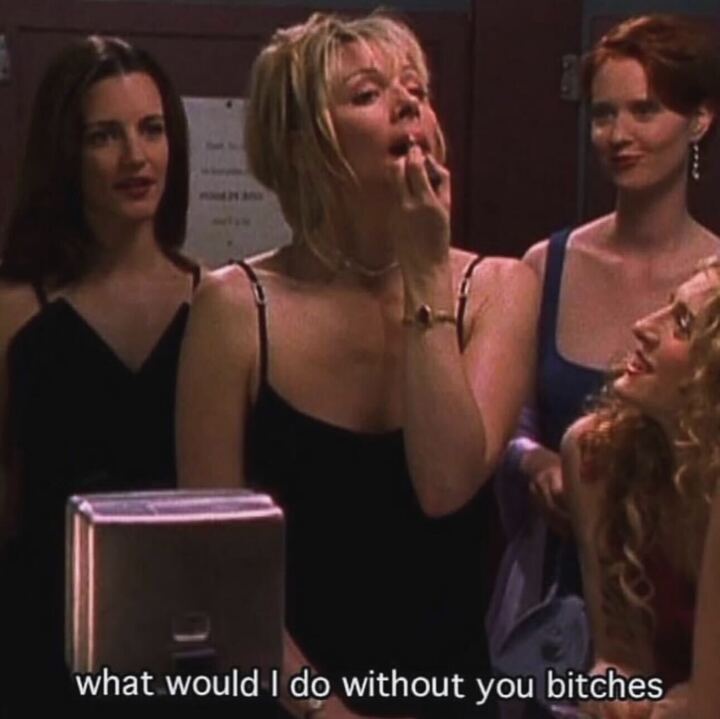
And more importantly, what do I think of them? Sitting in on a Friday night waiting for an overpriced massaman curry wasn’t exactly what I’d envisioned for my early thirties as a gawky teenager watching Sex and the City in sleepy North Devon.
I’m now (just!) older than Carrie was when season one of Sex and the City aired on June 6, 1998. I was seven when the show launched and 13 when the last episode aired, so I never watched the programme in real-time, but by the time Sky TV arrived in the South West of England, I’d already developed a passion for fashion courtesy of another stylish foursome - Yasmin, Cloe, Sasha and Jade (Bratz dolls, duhhh).
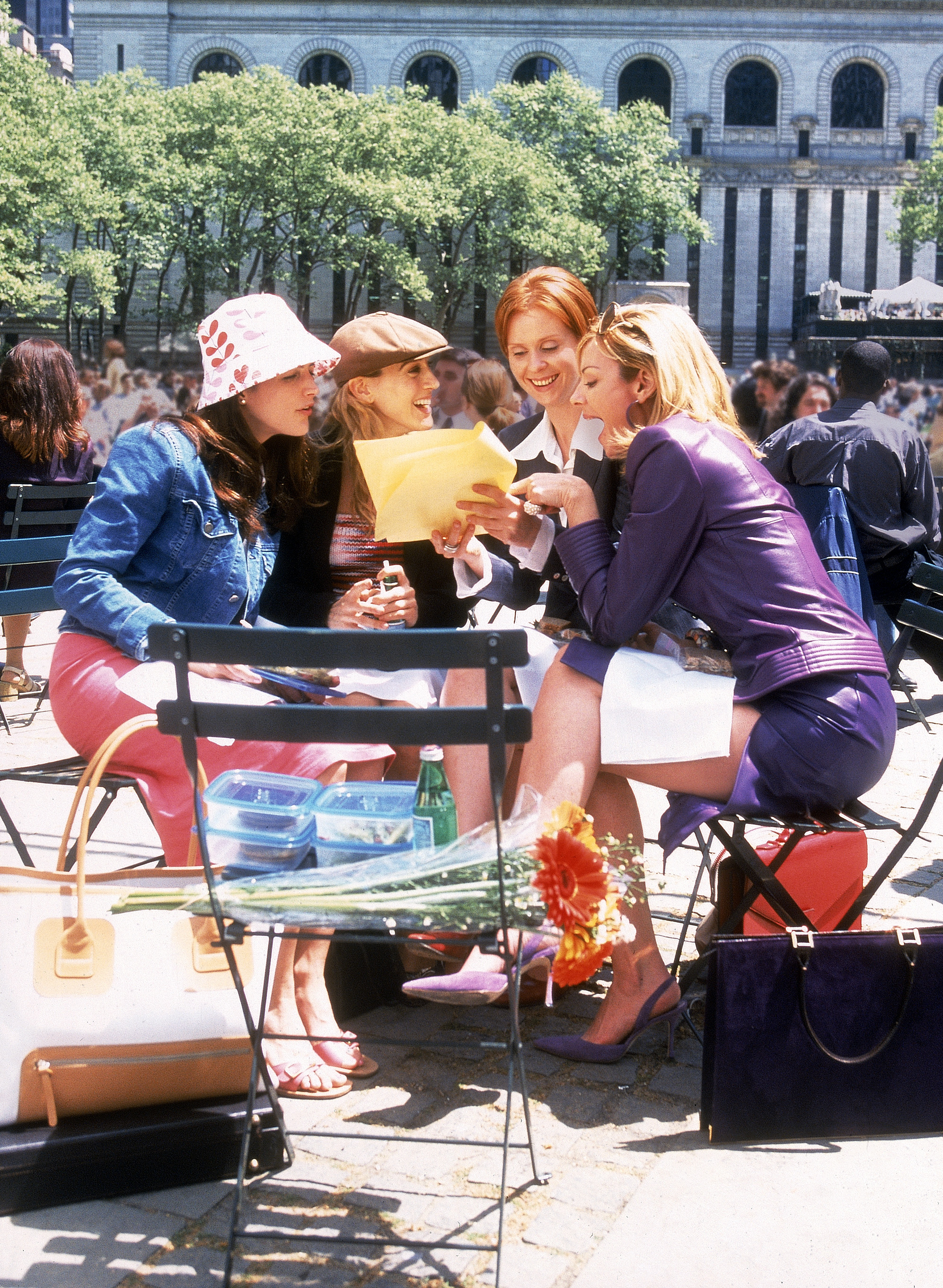
Despite even then finding Carrie irksome at best and unbearable at worst, Sex and the City became the blueprint for what life in the big city should look like. Sure, I longed for the label-heavy wardrobes and all those “fabulous parties,” but as a lonely teenager, what I really yearned for was their friendship. Yes, my life was starved of glamour (what teenagers’ lives weren’t back then), but while great outfits and invites are nice, solid friendship is something we all need.
Journalist and social commentator Chanté Joseph knows this, too. She’s just launched the aptly named Strangers in the City. “Does anyone else agree London feels LONELY as hell sometimes?!” asked Joseph and co-founder Zainab Kwaw-Swanzy in an Instagram post. Campaign to End Loneliness report Londoners are more likely than others in the UK to be affected by severe forms of loneliness.
Marie Claire Newsletter
Celebrity news, beauty, fashion advice, and fascinating features, delivered straight to your inbox!
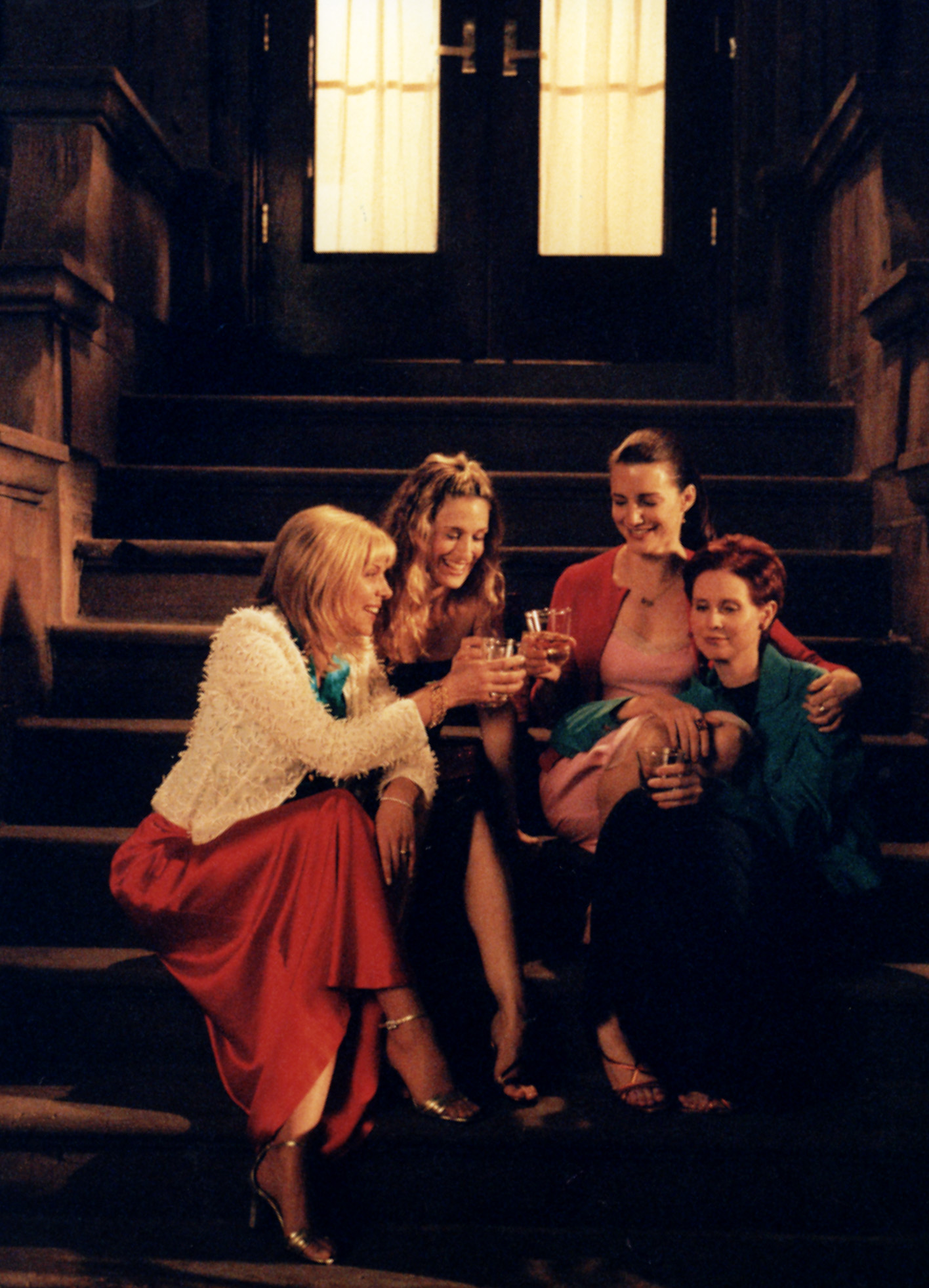
“We live in a city surrounded by millions of people, yet we feel so alone?” adds the duo. I asked myself this as an isolated twenty-something alone and adrift after graduating, and more recently on weekends when I find myself without plans in a way that doesn’t feel good. According to research, nearly four million of us in the UK experience chronic loneliness, yet admitting this still feels like a taboo. Clearly, we’re not alone in feeling alone — research by Snapchat in collaboration with Holly Cooke, founder of Lonely Girls Club, found that over half (58%) of women plan to invest more time, love and energy into female friendships than romantic relationships.
Thanks to social media, we’re bombarded by images of big group hangs, making it feel like everyone is together except us.“We constantly see people being social,” says Joseph, adding, “When you don’t feel like you have lots of friends, it can really just be a bit of a downer, and it feels almost quite embarrassing, especially as you get older.” I’ve wondered what’s wrong with me when I’ve gone weeks without seeing my friends. I might have Carrie’s c-c-c-c-curly hair (season 2, episode 18, for you non-loyalists), but where is my ride-or-die tribe?
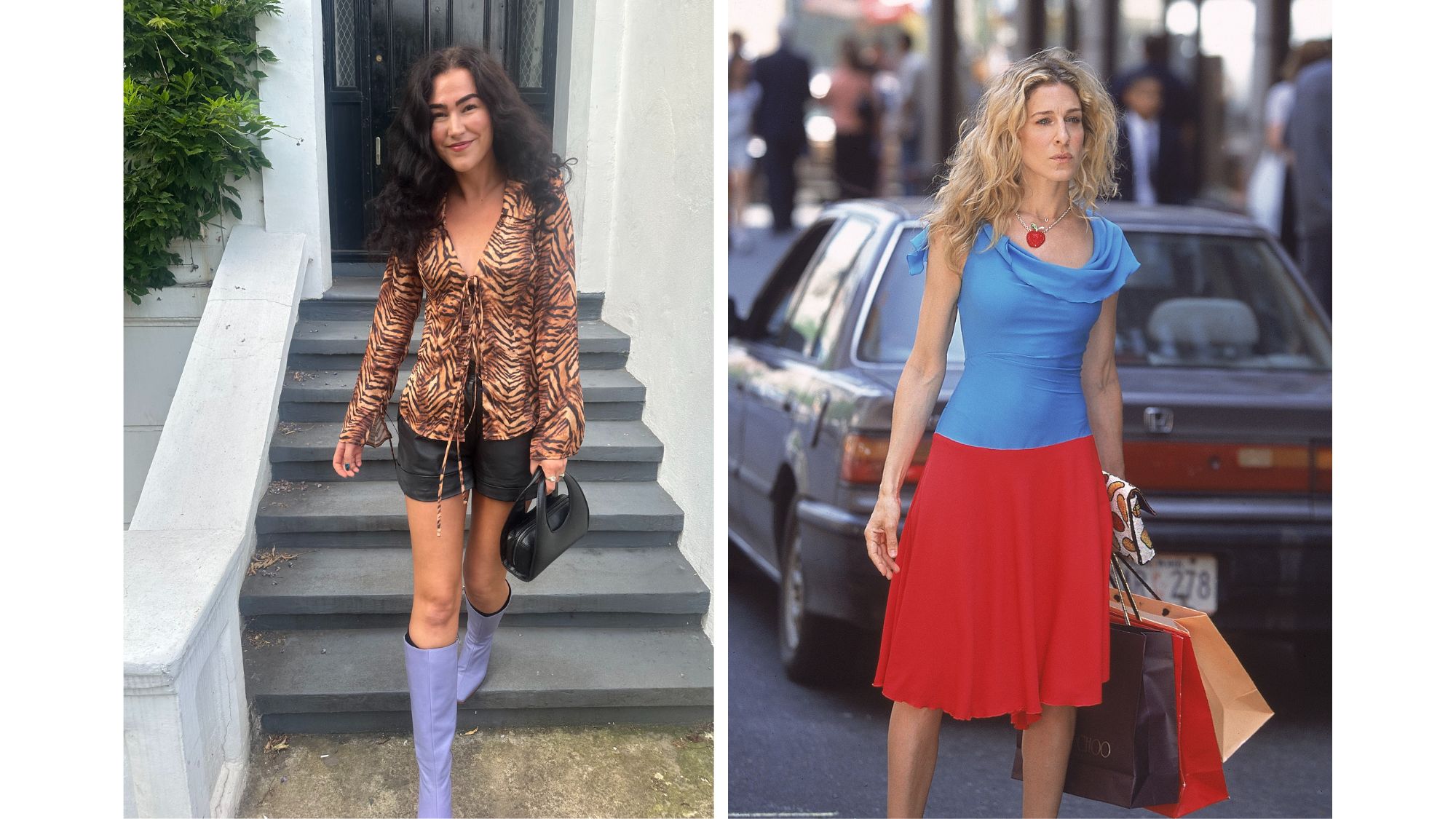
I might have Carrie’s c-c-c-c-curly hair, but where is my ride-or-die tribe?
Thanks to my lonely teenage years, I’ve spent most of my life pouring my all into building and maintaining friendships. While I am blessed to have several brilliant friendship groups, none have ever echoed the dynamic of Sex and the City despite our closeness. “I think shows like Sex and the City and Girlfriends definitely gave us a skewed perception of friendships.” agrees Joseph.
Extolling the virtues of female friendship is one of Sex and the City’s most enduring traits, and while I still feel overcome with emotion when Charlotte timidly suggests, “Maybe we could be each other’s soulmates”, I’m not going strive for that level of commitment from my friends anymore. Some of my closest friends are my soulmates and some of those soulmates I haven’t seen in six months. Real closeness doesn’t come from an unwavering (and frankly, unrealistic) commitment to weekly cosmos; it comes from allowing each other to grow and share our vulnerabilities. The truth is, we all feel a little lonely sometimes, and there’s no shame in that. So why do I still feel—for want of a better word—so icky when I think about reaching out to my friends when I do feel lonely?
A post shared by SATC 🍸 (@sexandthecitytv)
A photo posted by on
“If we first try to understand what loneliness is, we can see how it originates from an internal belief that we are in some way inadequate,” says Allistair Richardson, a trauma-informed Mental Health Coach at Kaylo. He describes this feeling of inadequacy as a “catch-22,” forcing us further into ourselves as we feel threatened or judged. “This isolating effect causes us to disconnect from our community and brings on feelings of loneliness,” says Richardson. To overcome this, Richardson says we “need to engage with our external world and find trust in connection once again”.
Joseph agrees, “You have to go and be vulnerable and take a risk and hope to strike up conversation and connection with interesting people.” It’s one of the reasons Strangers in the City has a strict one-ticket policy, so everyone has to arrive alone. Like me, Joseph often goes to events alone, but she says despite meeting new people, she rarely forms a lasting connection. “I feel like I know loads and loads and loads of people, but I don’t feel deeply connected to them. Like, how many people could I call in a crisis? I’m really not too sure.” It reminds me of the SATC movie when, alone and *cough cough* also waiting for takeout, Miranda calls Carrie - “So, I thought that one of the perks of having a family was that you didn’t have to spend New Year’s Eve alone...” questions Miranda.
That episode was pivotal in reshaping my idea of happily-ever-after, but it also left me wondering whether anyone loves me enough to traipse across town (in a sequinned skull cap and pyjamas, no less) for me?
All of the stuff that I consumed growing up made me feel like I would be in my mid to late twenties with a group of friends—like a solid group of friends—that I’d known forever. But actually, it was never really like that for me.
Chanté Joseph
At 33, I’m trying to stop thinking that I wandered off-route on the path to adulthood and starting to question whether the clique, presented to us as the de-facto form of friendship by shows like Friends, Sex and the City, and How I Met Your Mother, was ever a viable or realistic option. “I feel like all of the stuff that I consumed growing up made me feel like I would be in my mid to late twenties with a group of friends, like a solid group of friends that I’d known forever. But actually it was never really like that for me,” says Joseph.
Does that mean I don’t feel a pang of sadness when I see my four former icons of adulthood staring out at me on an Instagram post as if to ask, ‘Wouldn’t you want to be us?’ sadly, no. But I’m trying not to let it eat me up anymore. As much as I’d love to live opposite my best friends and spend every.single.evening together like Monica and Rachel, or never have to stomach going to an event alone, I think my experience is far more common than Carrie’s. And don’t even get me started on those apartments and how anyone can fund such a lavish lifestyle from a weekly column.
The women of SATC seemed to have unlimited time and funds to spend with one another. Their plans were sacrosanct, and nothing—not a demanding job or an ailing relative—interrupted those SoHo dates. The lack of external stressors makes their lives desirable but ultimately unrealistic. Even Samantha’s brief brush with cancer is conveniently wrapped up in a few episodes.
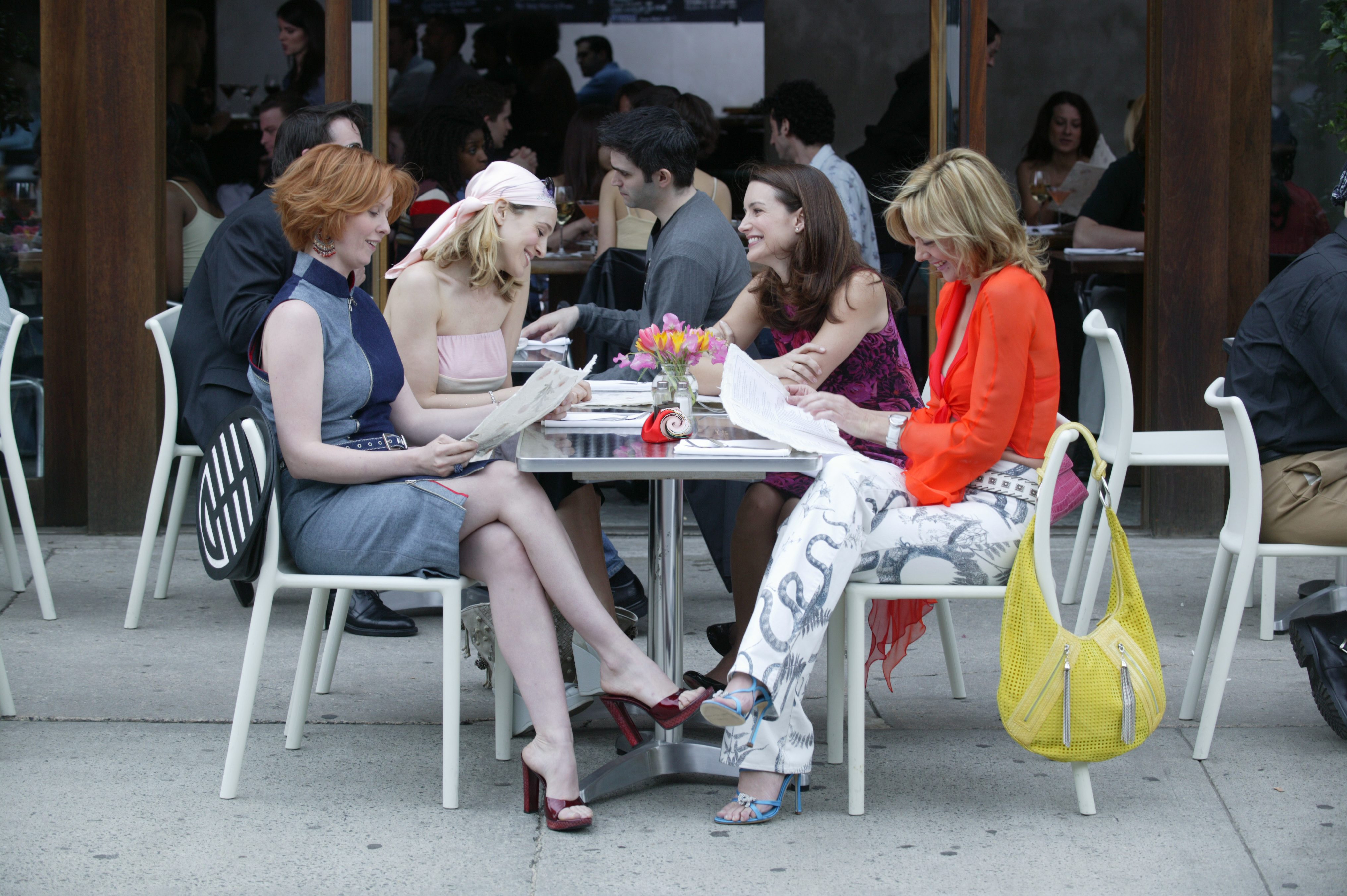
For better or worse, real life revolves around jobs, bills, responsibility, family obligations and, increasingly, kids of our own pawing for our attention. All of which make life rich but also tiring! And this is what I think of when I start pulling myself out of my self-pity party on Friday. My friend is hosting her club night—the aptly named Silly Bitch Disco—and I could call up my own Stanny, chuck on a pair of gold lamé boots (very Samantha) and ‘toot toot beep beep’ on over, but that would require a level of energy I cannot muster after a week of work.
So, as it turns out, the answer to life’s inevitable bouts of loneliness and low moods isn’t always to “attend a fabulous party”. Sometimes, the answer lies in takeout for two (ordered for one) and binge-watching codependent friendships on screen; it’s much more satisfying and much less effort.

Mischa Anouk Smith is the News and Features Editor of Marie Claire UK.
From personal essays to purpose-driven stories, reported studies, and interviews with celebrities like Rosie Huntington-Whiteley and designers including Dries Van Noten, Mischa has been featured in publications such as Refinery29, Stylist and Dazed. Her work explores what it means to be a woman today and sits at the intersection of culture and style. In the spirit of eclecticism, she has also written about NFTs, mental health and the rise of AI bands.
-
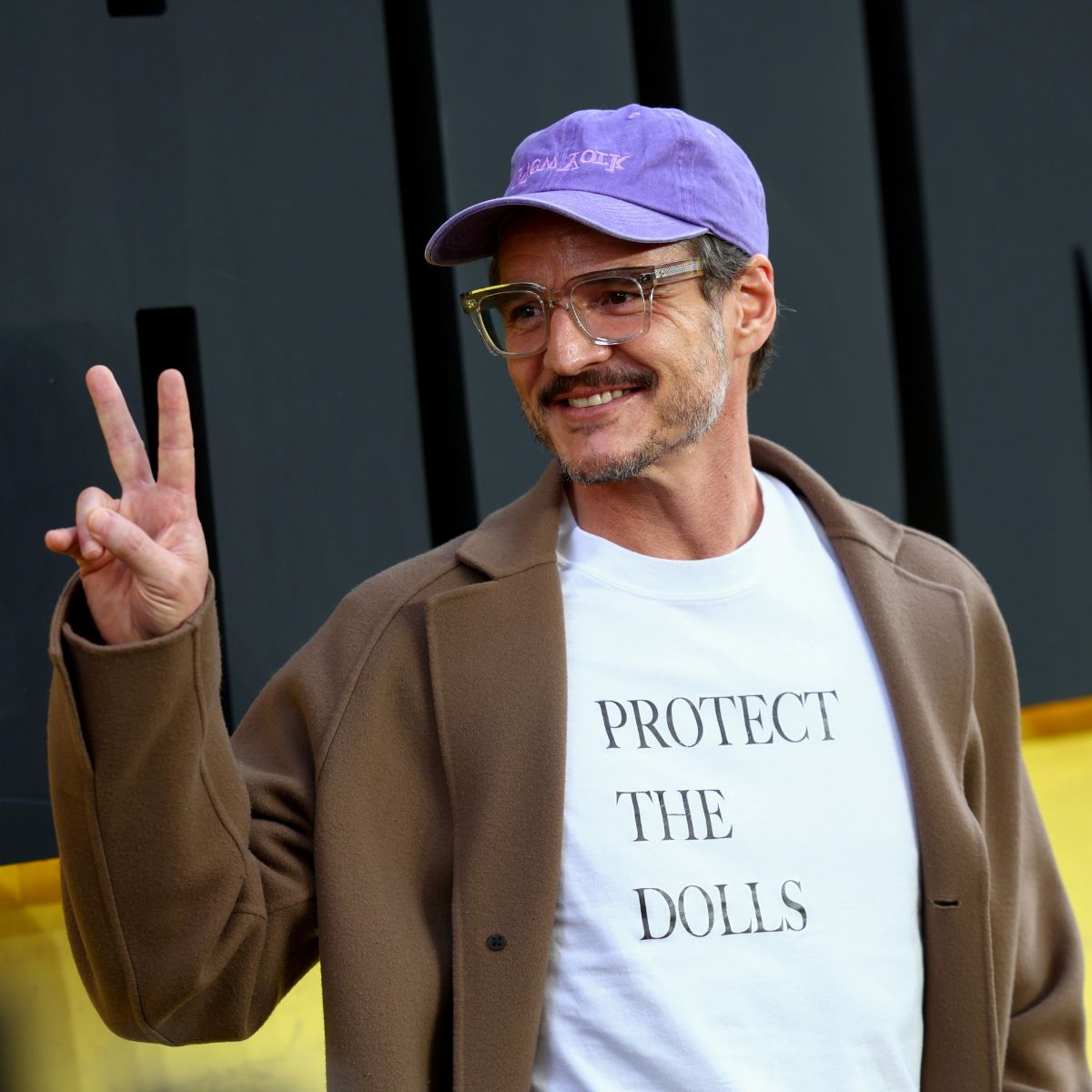 How the slogan t-shirt became this season's must-have - and why it's more than just another trend
How the slogan t-shirt became this season's must-have - and why it's more than just another trendNot just another Nineties throwback
By Clementina Jackson
-
 How are Trump’s tariffs affecting the fashion industry?
How are Trump’s tariffs affecting the fashion industry?The fluctuating situation in the US is having very real consequences
By Rebecca Jane Hill
-
 Here's every character returning for You season 5 - and what it might mean for Joe Goldberg's ending
Here's every character returning for You season 5 - and what it might mean for Joe Goldberg's endingBy Iris Goldsztajn